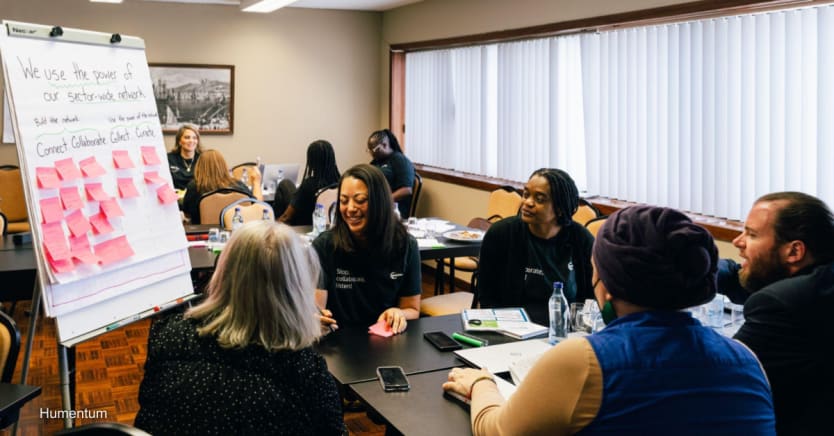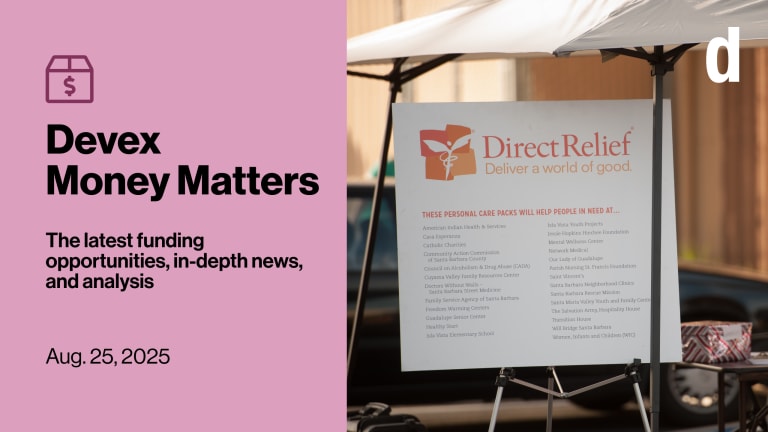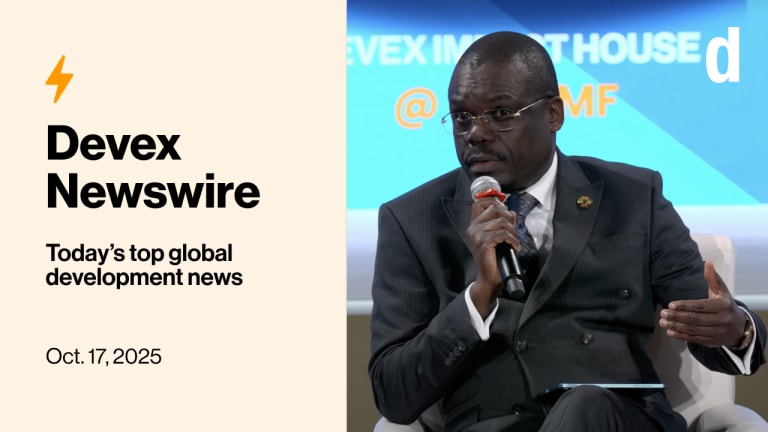
For some international global development practitioners, the power shift is not coming fast enough. For others, it can feel like old news. I am closing 2022 with the belief that fast or slow, real change toward equity is happening. For real this time.
And yet, truly equitable, locally driven development is not inevitable. If enough of us really want it, we are going to have to commit to doing things differently this time.
Let me give you two reasons why I would argue this time is different.
First, the environment has changed.
In the United States, the #MeToo movement and murder of George Floyd in 2020 not only forced organizations to sit up and take notice of issues of diversity, equity, inclusion, and belonging, or DEIB, it also increased the awareness and education of international NGO leaders and staff. Globally, the COVID-19 pandemic not only changed how we work, but it also created a mindset shift about how we should work. There are more and more voices across the sector that are not just calling for change, they are demanding it.
Second, INGOs are no longer waiting for change to come.
Indeed, as Sekai Chikowero, the vice president of programs at EngenderHealth, put it: “Like other models of power imbalance in history, change will inevitably take its course if we do nothing. Let us not wait for others to tell us what to do. … Let us champion the change ourselves.”
INGOs — who often sit in the middle, both constrained by and perpetuating the architecture of the system — are ready to take action from within. And they are prepared to do so with or without a push from funders.
How do I know this is true? Because we asked.
If we truly want to do things differently this time, we need to acknowledge that real, substantial, resilient change requires a mixture of good intent, trust, and shared accountability.
—In October 2022, Humentum surveyed INGOs to tell us how their ways of working are becoming more equitable, resilient, and accountable. Why? Because we believe that for change to happen externally, it has to start internally — and for funders and NGOs, that means we all need to look at our operating models as the driver of equitable development. We asked them to assess themselves against the 12 operational actions that we believe are key to shifting power. More than 40 INGOs completed the first ERA Index, and 100+ senior leaders took part in an in-person Executive Summit exploring the preliminary results.
We learned INGOs have gone from recognizing the need to shift power to taking substantive and specific actions. More than half of organizations surveyed report they are implementing systemic-level change partially or fully. The change is happening of their own volition, and most often in areas where they have significant or relative autonomy.
INGOs are:
• Making progress on reallocating decision-making and budgetary authority.
• Adding more seats at the leadership table, bringing new perspectives to strategic conversations.
• Changing the concepts and practice of headquarters to be role-based rather than location-based.
• Recognizing that DEIB is not a self-contained focus area that needs to sit in the HR function but instead that DEIB, locally led development, and power shift intersect and must be integrated across operations.
On the other hand, change is slower in areas where INGOs are constrained by funding and regulations set by donors. While organizations adhere to more financial and compliance approaches, they are still in the early stages of tackling deeply entrenched issues such as full cost recovery and the balance of risk, trust, and mutual accountability; two issues that require funder participation to fully address.
Power shift is still not inevitable
INGOs taking action in areas they control is a good sign. They are an influential part of the development ecosystem. And yet, there is still no guarantee equitable and locally driven development will be achieved. Why? Because real change is messy. Getting comfortable with that messiness is going to be the difference between surface level virtue signaling and real, meaningful, sticky change.
Earlier this month Médecins Sans Frontières shared a video that exemplifies the push and pull of this transformative moment we are currently grappling with. In their own words, the video was both a stance and a call to action, committing to more honest, ethical, and diverse communications and fundraising in the future. In just under 4 minutes, many cultural and structural barriers to change were identified and denounced: white saviorism, diversity and representation, linguistic injustice, and the all-powerful role that money plays in how INGOs make decisions about staffing, branding, fundraising, and culture. MSF acknowledged some important truths as well — that this is a long journey with an uncertain end and that there will be missteps along the way.
Opinion: Global development needs DEIA initiatives now more than ever
There is still a limited understanding of how diversity, equity, inclusion, and accessibility can lead to positive outcomes in global development. Yet DEIA is an essential framework for the sector.
The message supported everything we are purportedly working toward. Changing how our organizations work — our structures, people, funding, and sense of risk and accountability — will be essential to shifting towards equitable and locally-driven development.
And then came the reactions. Plenty of internet commentators publicly commended the message as an honest, transparent statement of intent. The video received over 2,500 shares. There were also plenty of detractors, calling the video virtue signaling, a performative gesture to offset the damaging Decolonize MSF report released last year.
Watching this play out over my social media feed felt like a precursor to the next phase of the movement toward more equitable development. And in many ways, it is inevitable. Because in the best-case scenario, change will not be linear; there will be mistakes and unintended consequences on the journey. And in the worst case, the sector is littered with examples of organizations that have swept serious transgressions under the rug and eroded trust.
If we truly want to do things differently this time, we need to acknowledge that real, substantial, resilient change requires a mixture of good intent, trust, and shared accountability.
I am encouraged every day I come to work and interact with Humentum’s INGO community. Through hundreds of conversations, I hear the motivation to be more equitable in how they work. The results of the ERA Index and the 2022 Executive Summit demonstrate a level of commitment and practical action that is new and encouraging.
And also, it is not enough. Because none of it means anything if there isn’t accountability. Without accountability the changes we hear about today do run the risk of virtue signaling. We are long overdue for a conversation about what accountability really means. Not just accountability to those with the power — often the funders and the public — but to our entire ecosystem, including our staff and local partners.
As more and more INGOs begin to make these changes, the role of trust will become essential. Trust but verify? 100%. But still, trust — meaning holding open the space for change to happen, in all its slow, messy glory.
Being open and inclusive about the process will be essential because MSF is right: We don’t all have it figured out. We will make mistakes along the way. It is not just about getting it done, it is about getting it right. How we do the work will be just as important as the work that is done. And maybe this time we have found a different way of doing things together.
Humentum’s ERA Index results will be publicly available in early 2023. Learn more on Humentum’s website.








